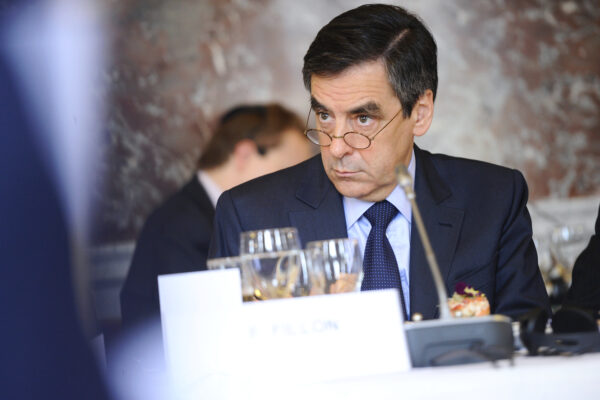
Benoît Hamon and Emmanuel Macron don’t have a lot in common. The former wants to raise taxes in France in order to finance a universal basic income. The latter wants to cut taxes and reduce public spending.
Yet the two presidential candidates made common cause on Monday, when they faced three Putin apologists in the first televised debate of the 2017 campaign.
Pro-Russian views
Marine Le Pen’s Russophilia is well-known. She is an avowed admirer of Vladimir Putin. Her National Front is financed by a Russian bank. Le Pen wants to take France out of the European Union, lift Western sanctions on Russia and swap her country’s alliance with the United States for a pact with Moscow.
The pro-Russian views of the center-right Republican candidate, François Fillon, may be less familiar to the public at large, but he used Monday’s debate as an opportunity to advertise his opinions to almost ten million viewers.
Fillon previously hailed Russia’s intervention in the Syrian war. He repeated his praise in the debate: “[We are in] a long-term war which will keep us occupied for a decade,” he said, “so we must count on Iran, Russia and other countries in the region.”
The reality is that Russia has intervened in Syria not to fight the same Islamists who threaten France, but rather to prop up the dictatorship of Bashar Assad. Assad, in turn, aided in the emergence of what is now the Islamic State by concentrating his firepower on less fanatical opponents of his regime.
Fillon also compared Russia’s annexation of the Crimean Peninsula from Ukraine to the Western-supported separation of Kosovo from Serbia: a whataboutism that glares over the fact that, Russian propaganda notwithstanding, ethnic Russians in the Crimea weren’t systematically persecuted by the national majority whereas ethnic Albanians in Kosovo were.
Finally, the far-left candidate, Jean-Luc Mélenchon, reiterated his long-standing opposition to NATO and proposed to replace it with a European security structure that includes Russia.
Divided left
Hamon, the mainstream Socialist Party candidate, took Mélenchon to task for his “dangerous” views. He insisted that Russia violated international law by stealing the Crimea from Ukraine.
Only a month ago, Hamon proposed a pact with Mélenchon in order to give the left a fighting chance in April’s election. Since Mélenchon turned him down, Hamon must convince left-wing voters to support him.
Together, Hamon and Mélenchon would get around one in four votes, according to recent polls. So long as they split this quarter of the electorate, neither could qualify for the crucial second voting round in May.
Pro-European
Macron has overtaken Fillon as the second most popular candidate in the race. A few surveys even put him in the lead.
He ruled out any pact with the Russians on Monday. “I will not build our independence by getting closer to Putin,” Macron said.
A globalist and social democrat, the former economy minister played up the virtues of European collaboration instead when neither Fillon nor Le Pen, his two closest rivals, had much positive to say about the EU.
